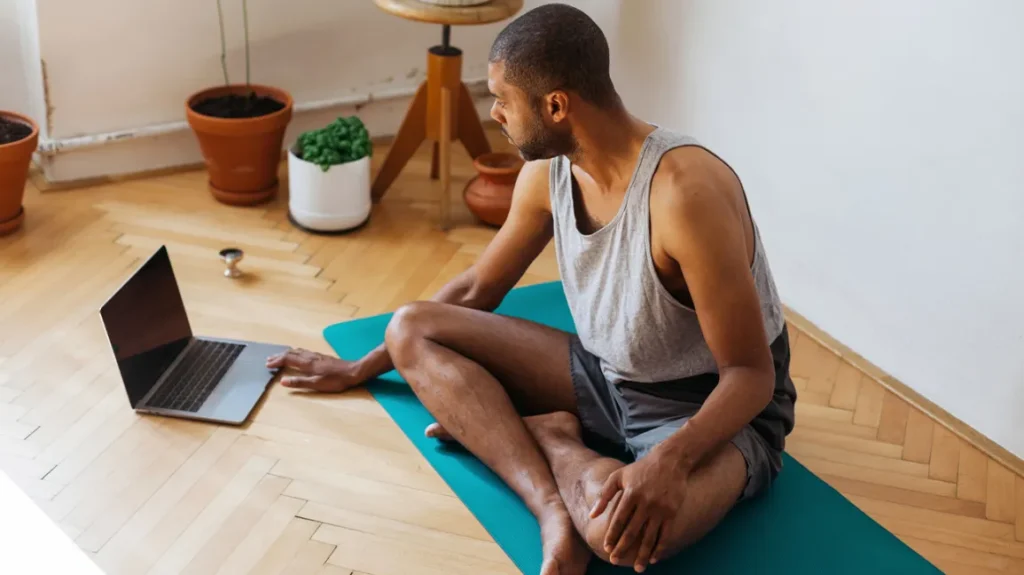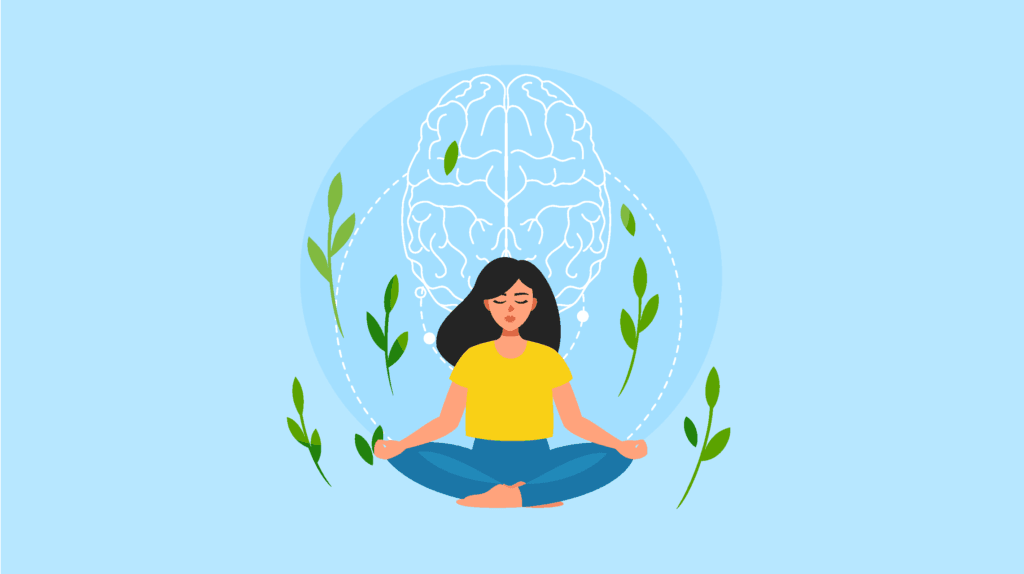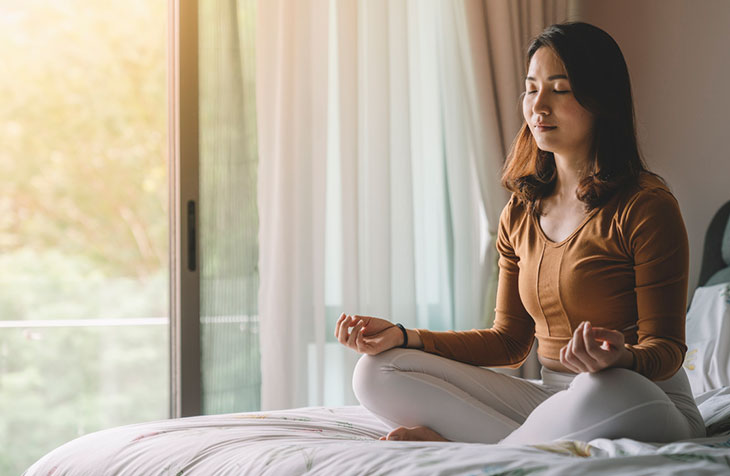Meditation and mindfulness techniques offer numerous benefits for stress reduction and mental clarity. Incorporating these practices into daily life can lead to improved overall well-being.
By dedicating time each day to meditation and mindfulness, individuals can experience reduced stress levels, increased focus, and a greater sense of inner peace. These practices can help cultivate a more positive mindset, enhance self-awareness, and promote emotional resilience. By making meditation and mindfulness a regular part of your routine, you can effectively manage stress, improve cognitive function, and foster a deeper connection with yourself and the world around you.

Credit: www.healthline.com
The Intersection Of Meditation And Mindfulness
Meditation and mindfulness are powerful practices that intersect to promote mental well-being and inner calm. By understanding the historical roots and evolution of these techniques, as well as their key principles and practices, individuals can incorporate them into their daily lives for stress reduction and clarity.
Historical Roots And Evolution
The practice of meditation has ancient origins, with evidence of its use dating back thousands of years. In various cultures and spiritual traditions, meditation has been utilized as a means of achieving heightened awareness and connection to the present moment. Similarly, mindfulness has roots in Buddhist teachings, emphasizing the cultivation of non-judgmental awareness and acceptance.
Key Principles And Practices
The key principles of meditation revolve around focused attention, relaxation, and the quieting of the mind. Techniques such as mindfulness meditation, loving-kindness meditation, and transcendental meditation are commonly used to achieve these states. Mindfulness, on the other hand, involves purposeful attention to the present moment, acknowledging thoughts and feelings without judgment, and fostering a sense of gratitude and compassion.
Scientific Backing For Inner Harmony
Scientific research has shown compelling evidence for the inner harmony achieved through meditation and mindfulness practices. These ancient techniques have gained widespread recognition in the modern world due to their proven neurological benefits, stress reduction, and positive impacts on mental health.
Neurological Benefits Explained
Meditation and mindfulness practices have been found to have a profound impact on the brain. Studies have shown that regular practice can increase the density of gray matter in brain regions associated with memory, learning, and self-awareness, leading to improved cognitive function and emotional regulation. Furthermore, these practices can reduce the activity in the brain’s default mode network, which is responsible for mind-wandering and self-referential thoughts, thereby promoting a sense of present-moment awareness and focus.
Stress Reduction And Mental Health
The benefits of meditation and mindfulness extend to stress reduction and mental well-being. Research indicates that these practices can lower the production of stress hormones, such as cortisol while increasing the activity of the parasympathetic nervous system, which induces relaxation. This can result in reduced anxiety, depression, and overall psychological distress, fostering a greater sense of calm and emotional stability in daily life.
Getting Started With Meditation
Discover the transformative power of meditation and mindfulness techniques for stress reduction and mental clarity. Learn how to seamlessly integrate these practices into your daily routine to enhance overall well-being and inner peace. Embark on a journey towards a more balanced and centered life today.
Meditation is a powerful practice that can bring numerous benefits to our physical, mental, and emotional well-being. If you’re new to meditation and want to incorporate it into your daily life for stress reduction and clarity, it’s important to start with the right techniques and create a conducive environment. In this article, we will explore the key aspects of getting started with meditation, including choosing the right technique and creating a conducive environment.
Choosing The Right Technique
When it comes to meditation, there are various techniques to choose from. Each technique has its unique approach and benefits, so it’s essential to find the one that resonates with you. Here are a few popular meditation techniques to consider:
- Mindfulness Meditation: This technique involves focusing your attention on the present moment, and observing your thoughts and sensations without judgment.
- Transcendental Meditation: In this technique, you repeat a mantra silently to yourself, allowing your mind to settle and experience a deep state of relaxation.
- Loving-Kindness Meditation: Also known as Metta meditation, this technique involves cultivating feelings of love, compassion, and kindness towards yourself and others.
Remember, the key is to choose a technique that resonates with you and feels comfortable.
Creating A Conducive Environment
To get the most out of your meditation practice, it’s important to create a conducive environment that promotes relaxation and focus. Here are a few tips to help you set up your meditation space:
- Find a Quiet Space: Look for a quiet area in your home where you can meditate without distractions. It could be a dedicated room or a cozy corner in your living room.
- Clear the Clutter: Remove any unnecessary items or clutter from your meditation space to create a clean and peaceful atmosphere.
- Use Soothing Colors: Consider using calming colors like blue or green for your meditation space. These colors can help create a sense of tranquility.
- Add Comfortable Seating: Choose a comfortable cushion or chair that supports proper posture during meditation.
- Set the Mood: Use soft lighting, candles, or incense to create a relaxing ambiance in your meditation space.
By creating a conducive environment, you’ll be able to enhance your meditation experience and fully immerse yourself in the practice.
Remember, getting started with meditation requires patience and consistency. Start with short sessions and gradually increase the duration as you become more comfortable. With regular practice, you’ll begin to experience the benefits of meditation, such as reduced stress, improved focus, and a greater sense of inner calm. So, take a deep breath, choose a technique that resonates with you, create a peaceful environment, and embark on your meditation journey today.
Integrating Mindfulness Into Daily Life
Incorporating mindfulness and meditation practices into daily life can bring about significant benefits such as stress reduction and mental clarity. These techniques offer a way to cultivate a more focused and present mindset, ultimately leading to a more balanced and fulfilling daily experience.
Integrating mindfulness into our daily lives can have profound benefits for our overall well-being and mental clarity. By practicing simple mindfulness exercises and incorporating mindful eating and walking into our routines, we can reduce stress and cultivate a greater sense of presence and awareness.
Simple Mindfulness Exercises
Mindfulness exercises are simple techniques that help us bring our attention to the present moment, allowing us to develop a greater sense of self-awareness and reduce stress. Here are a few simple mindfulness exercises you can incorporate into your daily life:
- Deep Breathing: Take a moment to focus on your breath. Inhale deeply through your nose, allowing your abdomen to rise, and exhale slowly through your mouth. Repeat this several times, noticing the sensation of your breath.
- Body Scan: Close your eyes and bring your attention to your body. Start from your toes and slowly move your attention up through your body, noticing any sensations or areas of tension. Allow yourself to relax and release any tension as you scan each part of your body.
- Gratitude Practice: Take a few moments each day to reflect on three things you are grateful for. It could be something as simple as a warm cup of tea or a kind gesture from a friend. Cultivating gratitude can shift your focus to the positive aspects of life.
The Role Of Mindful Eating And Walking
Mindful eating and walking are practices that allow us to bring mindfulness into our daily activities, enhancing our connection with the present moment and promoting a greater sense of appreciation. Here’s how you can incorporate mindful eating and walking into your routine:
Mindful Eating:
- Before you start eating, take a moment to observe your food. Notice its colors, textures, and aromas.
- Take small bites and chew slowly, savoring each flavor and texture.
- Pay attention to your body’s cues of hunger and fullness. Pause between bites and check in with your body’s signals.
Mindful Walking:
- Find a quiet place to walk, preferably in nature.
- Pay attention to the sensation of your feet touching the ground. Notice the rhythm of your steps.
- Observe your surroundings, taking in the sights, sounds, and smells.
By incorporating these practices into your daily life, you can reduce stress, enhance your focus, and cultivate a greater sense of clarity and well-being. Start with small steps and gradually increase your mindfulness practices, allowing them to become an integral part of your routine.
Overcoming Common Challenges
When incorporating meditation and mindfulness practices into daily life, you may encounter common challenges that can hinder your progress. Overcoming these obstacles is essential for reaping the full benefits of these techniques. Let’s explore how you can deal with distractions, stay motivated, and maintain consistency in your meditation and mindfulness journey.
Dealing With Distractions
Distractions are common during meditation and mindfulness practices. To overcome this challenge, create a designated quiet space free from external disturbances. Additionally, use earplugs or soothing music to minimize noise. Focus on your breath or a mantra to anchor your attention and gently guide it back whenever distractions arise.
Staying Motivated And Consistent
To stay motivated and consistent, set a realistic schedule for your meditation and mindfulness sessions. Start with a few minutes each day and gradually increase the duration as you build your practice. Establish a routine and integrate these practices into your daily schedule, making them a non-negotiable part of your day.

Credit: www.vantagefit.io
The Role Of Meditation In Modern Society
Impacts On Productivity And Creativity
Meditation boosts focus and creativity.
- Enhances problem-solving skills.
- Improves decision-making abilities.
Incorporation In Education And Healthcare
Teaching meditation in schools enhances focus.
- Reduces stress and anxiety levels.
- Improves overall well-being.
Advanced Meditation Practices
Moving beyond basic meditation techniques, advanced meditation practices offer a deeper level of inner exploration and self-awareness.
Exploring the Deep Meditation States
Advanced practitioners can enter profound states of consciousness through deep meditation, experiencing heightened awareness.
The Use Of Mantras And Chants
Mantras and chants are utilized to focus the mind and deepen the meditative experience, enhancing concentration and clarity.
Personal Stories Of Transformation
Discover the transformative power of meditation and mindfulness techniques for reducing stress and gaining mental clarity. Incorporate these practices into your daily life to experience the numerous benefits they offer.
Case Studies And Testimonials
Meditation and mindfulness have led to transformative experiences in the lives of many individuals. Here are some personal stories of transformation that showcase the power of these practices:
Long-term Benefits And Lifestyle Changes
Engaging in daily meditation and mindfulness practices can lead to long-lasting benefits and significant lifestyle changes:
- Improved focus and concentration
- Enhanced emotional well-being
- Reduced stress and anxiety levels
Individuals who incorporate these practices into their daily routine often experience a greater sense of inner peace and clarity in their lives.

Frequently Asked Questions
What Is Meditation?
Meditation is a practice that involves focusing the mind to achieve a state of relaxation and mental clarity. It is often used to reduce stress and anxiety, improve concentration, and promote overall well-being.
What Is Mindfulness?
Mindfulness is the practice of being present and fully engaged in the current moment, without judgment or distraction. It involves paying attention to your thoughts, feelings, and sensations in a non-judgmental way.
What Are The Benefits Of Meditation And Mindfulness?
Meditation and mindfulness have numerous benefits, including reducing stress and anxiety, improving focus and concentration, enhancing self-awareness and emotional regulation, and promoting overall well-being and happiness.
How Can I Incorporate Meditation And Mindfulness Into My Daily Life?
You can incorporate meditation and mindfulness into your daily life by setting aside a few minutes each day to practice, using guided meditations or apps, practicing mindful breathing during daily tasks, and taking breaks throughout the day to check in with yourself and your surroundings.
Judgment
Incorporating meditation and mindfulness practices into daily life can have significant benefits, including reducing stress and increasing clarity of mind. By taking time to quiet the mind, focus on the breath, and cultivate present-moment awareness, individuals can experience improved mental and physical health.
Regular meditation and mindfulness practice can also lead to greater self-awareness, enhanced creativity, and improved relationships. So why not give it a try and see how these practices can positively impact your life?



